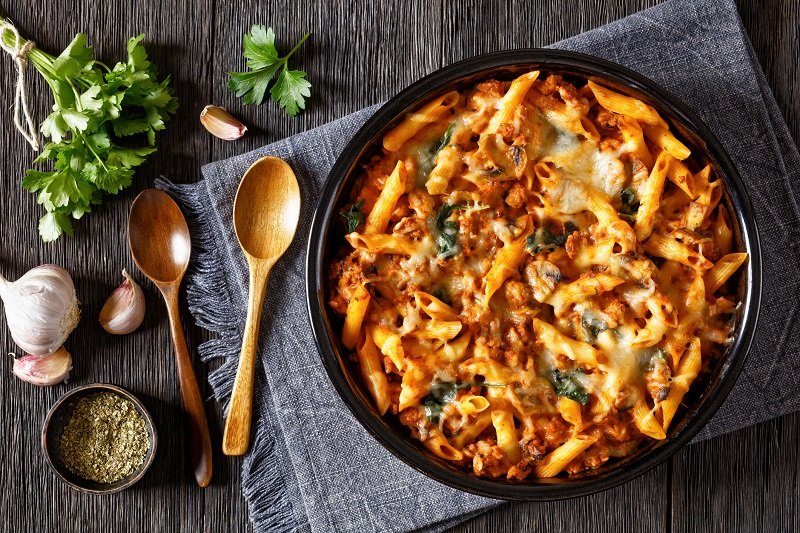Summary:
A British food site sparked Italian outrage by publishing “pasta recipe”a cacio e pepe recipe with parmesan and butter instead of pecorino Romano violating the dish’s sacred three ingredient rule. Rome’s restaurateurs and culinary groups lodged formal complaints, accusing the site of distorting tradition. The recipe was later corrected, though a tip suggesting cream still lingers, keeping tensions simmering.
A Recipe Initiates International Outcry
A diplomatic crisis over a knob of butter? Butter believe it.
Last year, a tea based fracas between the UK and the US threatened to brew up one hell of a storm. This year, “perfidious Albion” is locked in a near diplomatic showdown with Italy all ignited by the wrong cheese and a rogue knob of butter.
Good Food (formerly BBC Good Food), one of the UK’s top food sites, had the unmitigated nerve to describe Roman cacio e pepe as “a speedy lunch,” made with just four ingredients: “spaghetti, pepper, parmesan and butter.”
Mamma mia!
Italians were livid, and with good reason. Those who have attempted cacio e pepe know it’s anything but speedy; achieving the delicate emulsion of cheese and pasta water takes serious skill. It’s a litmus test for an Italian restaurant: if they get cacio e pepe right, they’re legit. Use the wrong cheese say, parmesan and you’re dining with heathens. And butter? Absolutely forbidden.
Also Read: Grocery Costs Top List of Financial Stressors for Americans, Poll Shows
Authentic Roman cacio e pepe calls for only three sacred ingredients: pasta (traditionally tonnarelli), black pepper, and pecorino Romano. Parmesan is a cardinal sin, and butter doesn’t belong at all.
When Il Messaggero, based in Rome, weighed in, they cheekily paraphrased the British anthem: “God save the king” became “God save the cacio e pepe.”
Claudio Pica, president of Fiepet Confesercenti in Rome and Lazio, took formal action lodging a complaint with Immediate Media and the British ambassador, condemning the recipe as an “absurd mystification” of Italian culinary tradition.
Forced to reckon, Good Food eventually restored the recipe’s integrity back to the three right ingredients. But wait lurking online is a cheeky tip suggesting struggling cooks can add double cream to help the sauce come together. Will they never learn???
A journalist from RAI didn’t hold back:
“They always tell us we’re not as good as the BBC… and then they do this. This is a very serious mistake. The suggestion to add cream made me cringe.”
Let’s hope nobody reminds them how most Brits still make carbonara with cream. Otherwise, this pasta spat could erupt into a full blown food war.
A Taste of History: When Food and Diplomacy Clash
Food has long been entwined with diplomacy sometimes smoothing tension, other times igniting controversy.
- French Fry to “Freedom Fry”: In 2003, enraged by France’s opposition to the Iraq War, the U.S. House of Representatives rebranded “French fries” as “Freedom fries.” (Cue “French toast” → “Freedom toast.”) A symbolic culinary snub, this act is a classic case of “gastro warfare.” BioMed Central
- Arepa Agony: Colombia and Venezuela fiercely battle over the origin of arepas. Venezuelan President Nicolás Maduro has even used the dish as a nationalist rallying cry insisting it’s uniquely Venezuelan. Wikipedia
- Kimchi Conundrum: South Korea, North Korea and even China have sparred over kimchi’s origins and standards. Disputes flared during ISO and food standard discussions, fueling a “kimchi war.” Wikipedia
These flashpoints underscore how food often becomes a proxy for national identity and pride.
A Historical Menu of Food-Related Diplomacy
From empires to trade wars, food scandals have had global consequences.
- The Pork War (1880s): Driven by health concerns and protectionism, several European nations including Italy banned American pork. The United States retaliated with economic threats, ultimately forcing Europe to relent. Wikipedia
- Food as Peace (or Politics):
- During the Camp David Accords (1978), President Carter cooked meals for Anwar Sadat and Menachem Begin, helping thaw relations.
- At the 2018 Inter Korean Summit, Kim Jong un and Moon Jae in shared cold noodles a brief but meaningful culinary icebreaker. WeChronicle
- Diplomacy Goes Awry:
Politics and food don’t always mix well like at the 2022 NATO summit in Madrid, where serving “Russian salad” sparked criticism amid the Ukraine crisis. POLITICOworldnewsintel.com
Or Jacques Chirac’s scathing remarks about British cuisine “You can’t trust people who cook as badly as that.” POLITICOworldnewsintel.com
Not to mention President Bush’s unfortunate gag moment during a Japanese state dinner in 1992, forever known as “bushusuru.” worldnewsintel.comBBC
Why This Matters
Food isn’t just fuel it’s cultural identity, soft power, and sometimes, diplomatic ammunition. A simple twist in a recipe can serve as a cultural flashpoint, reminiscent of older, simmering disputes far beyond the kitchen.




